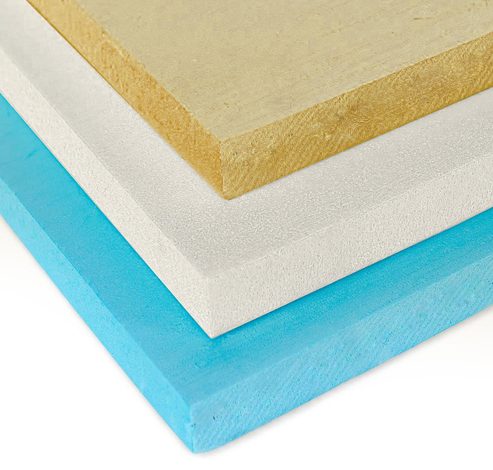Preventing Rust and Corrosion with VCI Film: How it Works

What is VCI Film?
VCI film stands for Volatile Corrosion Inhibitor film. It is a type of packaging material that contains a volatile corrosion inhibitor, which is a chemical substance that helps to prevent the formation of rust and corrosion on metal surfaces. it commonly used in various industries, including automotive, electronics, aerospace, and military, where metal components are prone to corrosion and need protection during storage and transportation.
How Does VCI Film Work?
VCI film works by releasing a vapor that forms a protective layer on the metal surface, preventing the metal from coming into contact with moisture and oxygen, which are the main causes of corrosion. The vapor molecules adhere to the metal surface and form a thin film that inhibits the electrochemical reactions that cause corrosion.
Advantages of Using VCI Film
There are several advantages of using for corrosion protection:
- Cost-effective: VCI film is a cost-effective method for preventing corrosion compared to other methods, such as coatings or electroplating.
- Easy to use: is easy to use and requires no additional equipment or specialized training.
- Versatile: can be used to protect a wide range of metal components, including ferrous and non-ferrous metals.
- Non-toxic: is non-toxic and safe for use in food packaging and other sensitive applications.
- Environmentally friendly: an environmentally friendly alternative to traditional corrosion prevention methods that use hazardous chemicals.
How to Choose the Right VCI Film for Your Application
Choosing the right VCI film or Volatile Corrosion Inhibitor film for your application depends on several factors, including the type of metal, the storage conditions, and the length of storage time. Here are some considerations to keep in mind when selecting
How to Choose the Right VCI Film for Your Application
Choosing the right for your application depends on several factors, including the type of metal, the storage conditions, and the length of storage time. Here are some considerations to keep in mind when selecting VCI film:
- Type of metal: The type of metal you are protecting will determine the type of you need. Different are formulated to protect different types of metals, such as ferrous, non-ferrous, or multi-metal.
- Storage conditions: The storage conditions, such as temperature and humidity, can affect the effectiveness of the VCI film. Make sure to choose a that is appropriate for the storage conditions.
- Length of storage time: The length of time you need to store the metal component will determine the thickness of the you need. Thicker films provide longer protection. Read Also
Best Practices for Storing and Handling VCI Film
Proper storage and handling of VCI film is critical to ensuring its effectiveness. Here are some best practices for storing
- Store in a dry, cool place away from direct sunlight.
- Keep in its original packaging until it is ready to use.
- Use gloves when handling to avoid contamination.
- Ensure that the metal component is clean and dry before wrapping.
- Ensure that the is completely sealed around the metal component to prevent moisture and oxygen from entering.
Conclusion
Is a cost-effective and versatile method for preventing corrosion on metal components during storage and transportation. By understanding the factors that affect its effectiveness and following best practices for storage and handling, you can ensure that your metal components remain protected from corrosion.
Additional Information
- It made from a variety of materials, including polyethylene, polypropylene, and polyester.
- It available in a variety of sizes and thicknesses.
- It can be used to protect a wide variety of metal parts, including tools, machinery, and equipment.
- is typically used for short-term storage and shipping.
- It can be recycled.
If you are looking for a way to protect your metal parts from corrosion, is a great option.
Volatile corrosion inhibitors (VCIs) are a type of corrosion protection that uses volatile chemicals to create a protective barrier on the surface of metal. VCI films are a type of VCI product that are made from a plastic film that has been impregnated with VCI chemicals. When the film is sealed around a metal object, the VCI chemicals vaporize and create a protective layer that prevents corrosion.
There are many different types of VCI films available, each with its own unique properties. Some factors to consider when choosing the right VCI film include the type of metal being protected, the environment in which the metal will be stored, and the desired level of protection.
For example, if you are storing ferrous metals (iron and steel) in a humid environment, you will need a VCI film that is specifically designed for this type of application. This type of film will typically contain more VCI chemicals, which will provide a higher level of protection.
If you are storing non-ferrous metals (such as aluminum and copper) in a dry environment, you may be able to get away with using a less expensive VCI film. However, it is always important to check the manufacturer’s specifications to make sure that the film you choose is appropriate for the type of metal being protected.
Here are some of the benefits of using VCI films:
- They are environmentally friendly. VCI films do not contain any harmful chemicals, so they are safe to use around people and the environment.
- They are easy to use. VCI films can be easily cut and applied to metal objects.
- They are effective. VCI films provide a long-lasting and reliable corrosion protection.
- They are cost-effective. VCI films are a cost-effective way to protect metal objects from corrosion.
If you are looking for a reliable and effective way to protect metal objects from corrosion, VCI films are a great option. With so many different types of VCI films available, you can find one that is specifically designed for your needs.
Here are some additional tips for choosing the right VCI film:
- Consider the type of metal being protected. Some VCI films are designed for specific types of metals, such as ferrous or non-ferrous metals.
- Consider the environment in which the metal will be stored. Some VCI films are designed for use in humid or dry environments.
- Consider the desired level of protection. Some VCI films provide a higher level of protection than others.
- Read the manufacturer’s specifications to make sure that the film you choose is appropriate for your needs.
By following these tips, you can choose the right VCI film to protect your metal objects from corrosion.





